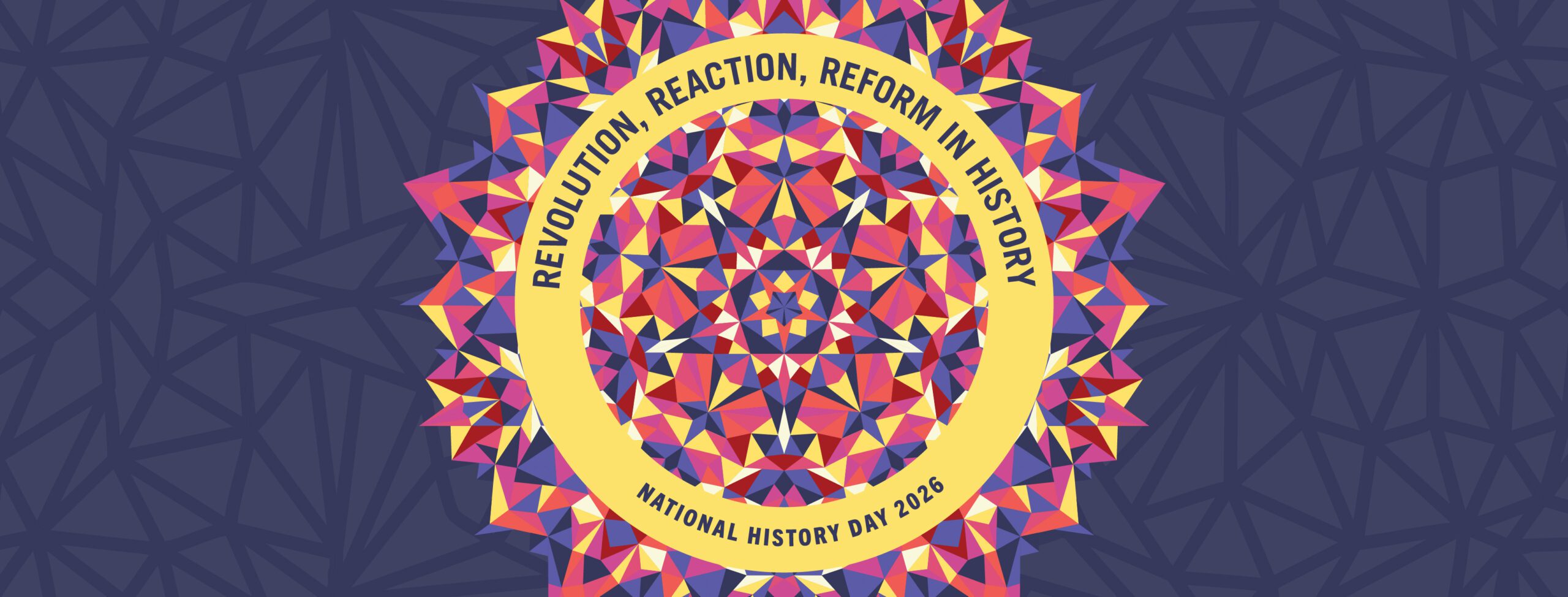
2026 Contest Theme
To coincide with the commemoration of the 250th anniversary of the Declaration of Independence, NHD’s 2026 theme is Revolution, Reaction, Reform in History. The distinctions among revolutions, reactions, and reforms are sometimes blurred. Revolutions and reforms are often reactions to ideas, actions, or events. In turn, revolutions and reforms inspire reactions. Think of it as a domino effect—knock one down, which knocks the next one down, which knocks . . .
The first question that comes to mind is, “Do students have to focus on all three words—revolution, reaction, reform?” No, students do not have to focus on all three aspects of the theme. It depends on the topic. If the topic involves all three, then students should be sure to include all three.
The following resources are available to start defining your topic and begin your research.

Chronicling America - Search America's historic newspaper pages from 1789-1963 or use the U.S. Newspaper Directory to find information about
American newspapers published between 1690-present.
Library of Congress - America's library. The Library of Congress is the largest library in the world, with millions of books, recordings, photographs, newspapers, maps and manuscripts in its collections. The Library is the main research arm of the U.S. Congress and the home of the U.S. Copyright Office. The Library was founded in 1800, making it the oldest federal cultural institution in the nation. On August 24, 1814, British troops burned the Capitol building (where the Library was housed) and destroyed the Library's core collection of 3,000 volumes. On January 30, 1815, Congress approved the purchase of Thomas Jefferson’s personal library of 6,487 books for $23,950.
The National Archives - American's record keeper. An archives is a place to gather firsthand facts, data, and evidence from letters, reports, notes, memos, photographs, and other primary sources. The National Archives is the U.S. Government’s collection of documents that records important events in American history. Topic ideas with Primary Sources at The National Archives.
PBS History - PBS has documentaries about historical figures and events. While many of the films found here are documentaries, some are fictionalized. It is okay to view a fictionalized story in your research, but be sure you know what is fact and what is fiction, and check your facts.
White House Historical Association - Founded in 1961 by First Lady Jacqueline Kennedy with a mission to protect, preserve, and provide public access to the rich history of America’s Executive Mansion.
World Digital Library - Search 19,147 items about 193 countries between 8000 BCE and 2000.
Women's History - Communication takes on various forms and serves different purposes; it is not just limited to speech. Throughout history women have used different forms of communication, such as protest, film, dance, and dress, to express myriad ideas.
American Archive of Public Broadcasting - Public broadcasting has been an influential form of communication for the past seven decades, and students can use the American Archive of Public Broadcasting (AAPB) to explore how public media has communicated important issues to the American public through television and radio. More than 55,000 programs from the late 1930s to the present day are streaming online, including interviews with leading political and cultural figures and ordinary people, national newscasts and news from diverse communities across the nation, revealing documentaries, and live coverage of events as they occurred.
Maryland Center for History and Culture - The Maryland Center for History and Culture collects, preserves, and interprets the history, art, and culture of Maryland. By exploring multiple perspectives and sharing national stories through the lens of Maryland, the MCHC inspires critical thinking, creativity, and community.
Women Suffragists of Maryland - A webinar on the history of women suffragists in Maryland.